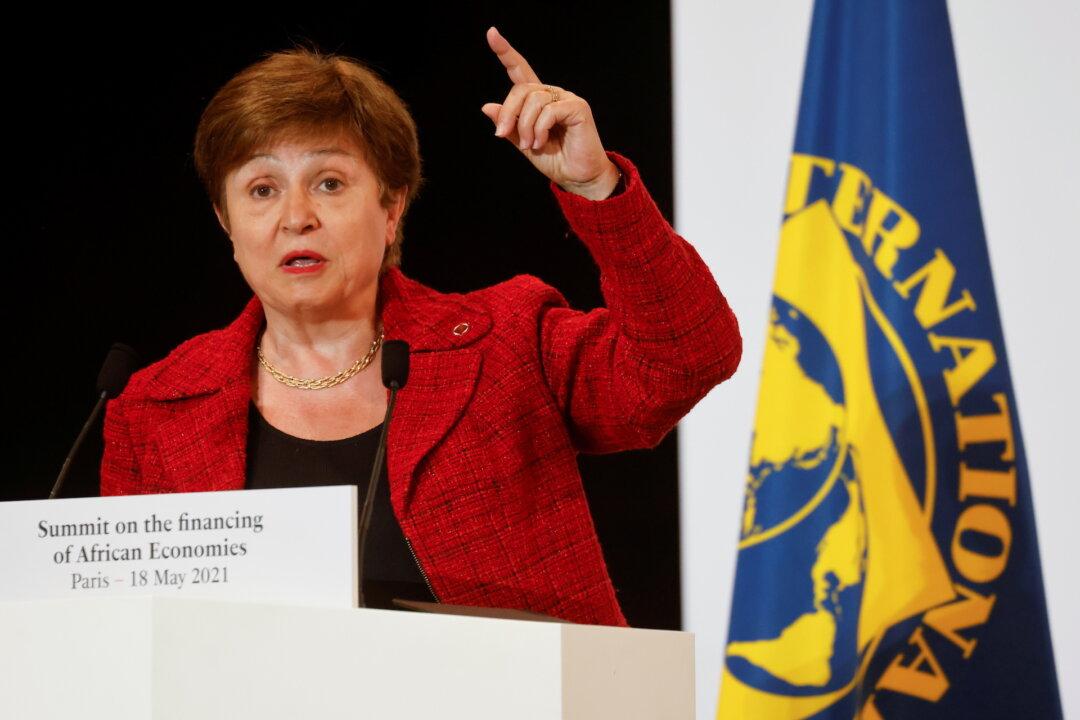WASHINGTON—International Monetary Fund chief Kristalina Georgieva on Wednesday distanced herself and the fund from a data-rigging scandal involving her former employer, the World Bank, but said she did not expect the saga to hamper decades of close collaboration between the two institutions.
Georgieva, who was cleared of wrongdoing in the matter by the IMF’s executive board on Monday, had sharply criticized a report prepared by law firm WilmerHale for the World Bank’s board, and the decision to make its findings public.





